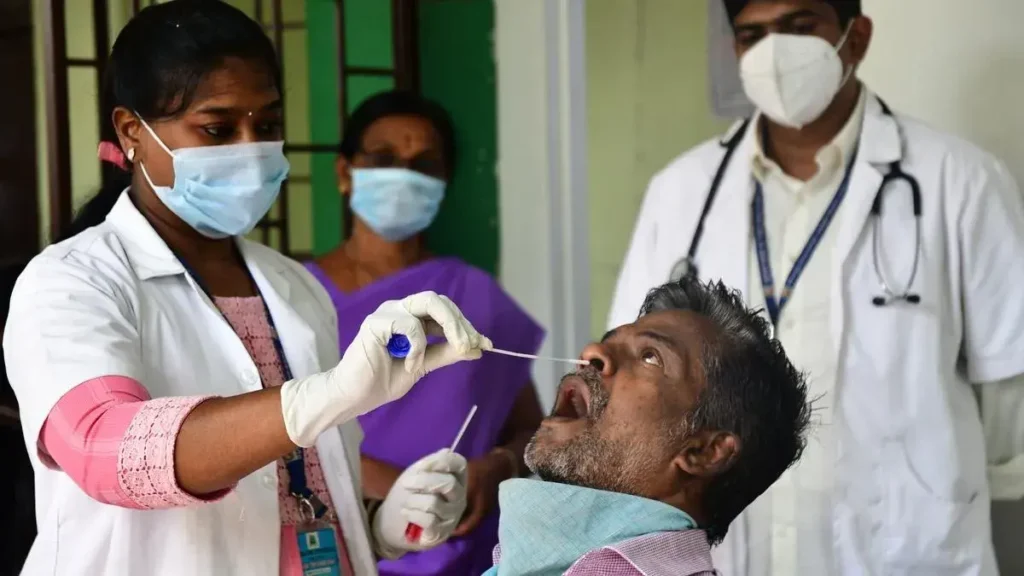Health Ministry Issues Alert on Covid-19 Subvariant JN.1: Guidelines and Concerns Amid Rising Cases
The Indian government has issued an alert to states regarding the emergence of the new Covid-19 subvariant, JN.1, as cases continue to rise in Kerala and 15 cases have been detected in samples from Goa. The Health Ministry emphasized that it is not yet clear whether an infection caused by JN.1 produces different symptoms or is more severe than other variants. The ministry stated that there is currently no indication of increased severity from JN.1, and there is no evidence that it presents an increased risk to public health compared to other circulating variants. Experts, including Dr. GC Khilnani, reassured that the elderly and those with comorbidities are not at an increased risk compared to other variants. General precautions such as handwashing and avoiding crowded areas during the festive season are recommended. The existing treatment for COVID-19 is expected to be effective against JN.1, and updated COVID-19 vaccines are expected to provide increased protection. RT-PCR tests remain the most reliable method for detecting the new subvariant. As the festive season approaches, the Health Ministry stressed the importance of adhering to respiratory hygiene norms, including wearing masks in enclosed and crowded spaces, frequent handwashing, and social distancing. States, such as Karnataka, are taking additional measures, mandating face masks for the elderly and those with comorbidities. The Health Ministry is conducting intensified surveillance at various levels, including laboratories, communities, and sewage, to monitor and report cases of influenza-like illness and Severe Acute Respiratory Illness. The global concern over JN.1 is due to its immunity-evading capacity, leading to rapid spread, with outbreaks reported in the US, China, and Singapore. JN.1 is a descendant of the BA.2.86 lineage of SARS-CoV-2.

